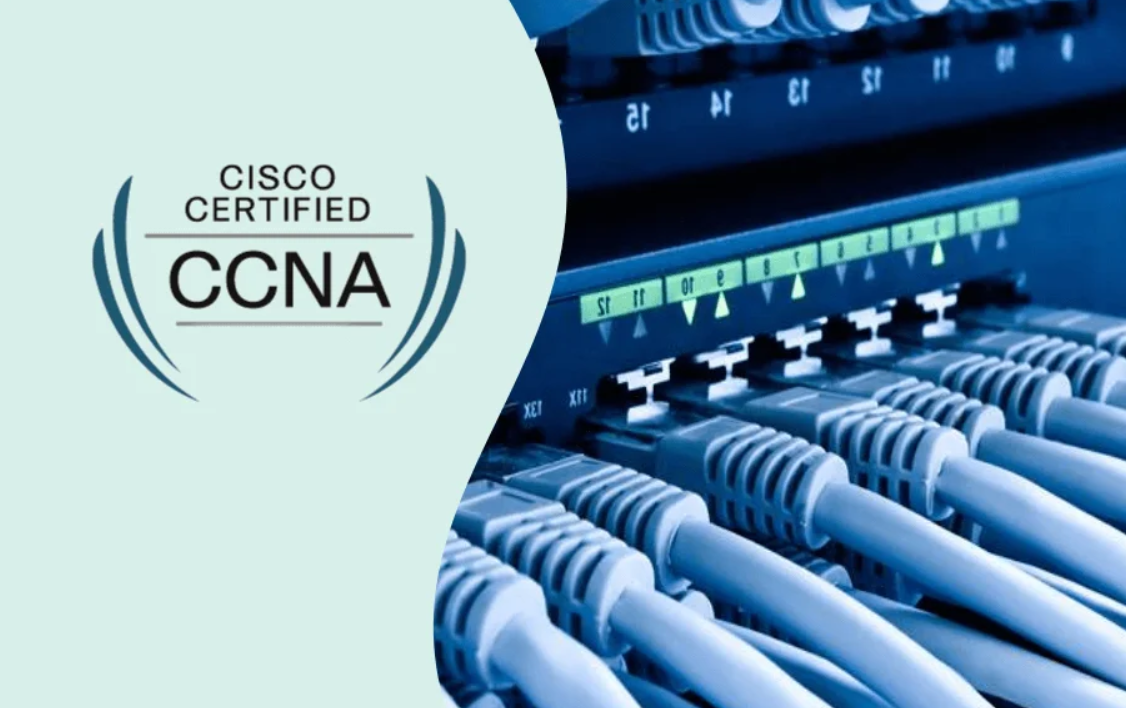In today’s fast-paced IT industry, practical skills are the true measure of success. Whether you’re starting your career in networking or looking to advance to a professional level, the CCNA CCNP course is the perfect pathway to develop real-world expertise in Cisco technologies. These certifications validate your ability to manage, troubleshoot, and optimize network systems, ensuring that you’re job-ready in one of the most in-demand fields globally.
A hands-on learning approach is essential to mastering networking concepts. The right CCNA CCNP course provides students not only with theoretical knowledge but also with practical labs, simulations, and real-device practice. This blend of learning methods ensures you’re ready to solve real-world networking problems, a skill highly valued by employers worldwide.

Why Choose a CCNA CCNP Course?
The CCNA CCNP course is designed to build a strong foundation in networking fundamentals before advancing to complex topics like routing, switching, and network automation. While the CCNA (Cisco Certified Network Associate) course covers the basics of IP addressing, network access, and infrastructure services, the CCNP (Cisco Certified Network Professional) course takes it a step further, preparing you for enterprise-level networks.
When you enroll in a reputable CCNA CCNP course, you gain access to:
- Structured modules: covering Cisco networking essentials step by step.
- Practical labs: that mimic real-world network setups.
- Expert guidance: from certified Cisco trainers.
- Industry-relevant projects: to apply your knowledge in real-time environments.
As technology evolves, network engineers are expected to manage increasingly complex systems. With organizations shifting toward cloud-based infrastructures and automation, Cisco-certified professionals are in high demand across the IT landscape.
Understanding CCNP Certification Cost
One of the main concerns for aspiring networking professionals is the CCNP certification cost. While it can vary based on training institute, country, and course duration, the investment is well worth the long-term career benefits. In most cases, the CCNP certification cost covers not only the examination fee but also access to advanced labs, mentorship, and official Cisco resources.
It’s important to remember that the CCNP certification cost reflects the value of expertise you’ll gain. Once you achieve your certification, you can expect significantly higher salary packages, global recognition, and job security. Compared to many IT certifications, the CCNP certification cost is moderate but delivers exceptional return on investment.
For learners planning their budget, it’s smart to check with trusted institutes or Cisco learning partners for transparent details about the CCNP certification cost and available payment plans.
Building a Career in Networking
The IT industry offers countless career paths, but networking remains one of the most stable and rewarding. Completing a CCNA CCNP course gives you the credentials to pursue job titles such as:
- Network Engineer
- Systems Administrator
- Network Analyst
- Security Specialist
- Cloud Networking Engineer
These roles are the backbone of every modern enterprise. With a CCNA CCNP course, you’re not just learning to pass exams—you’re developing practical skills that keep digital systems running efficiently.
As you move through your training, you’ll notice that hands-on practice is what sets great network engineers apart. Building real configurations, troubleshooting connectivity issues, and managing routing protocols prepare you for challenges that cannot be solved by theory alone.
The Role of PM Networking in Real-World Training
Institutes like PM Networking focus on helping learners gain both technical mastery and job-oriented experience. Their approach combines Cisco’s global standards with real-world implementation, enabling you to tackle network challenges confidently.
Many students who study through PM Networking find that their lab-intensive sessions mirror professional work environments. You not only learn how to design and deploy networks but also gain the confidence to manage them efficiently. This practical exposure makes a huge difference when stepping into professional roles after completing your CCNA CCNP course.
Evaluating the Right Training Institute
Choosing the right place to pursue your CCNA CCNP course is a critical step. While multiple platforms offer online and offline training, a few key features distinguish the best ones:
- Updated Curriculum: The syllabus should reflect the latest Cisco exam objectives.
- Lab Access: Unlimited virtual or physical lab time for hands-on learning.
- Certified Instructors: Trainers with years of experience in Cisco networking.
- Flexible Learning Options: Online, hybrid, or weekend batches to suit working professionals.
- Career Support: Resume building, interview preparation, and job placement assistance.
It’s worth asking whether the institute provides transparent details about the CCNP certification cost and any bundled offers with the CCNA course. Some reputed institutes offer discounts or installment options, making it easier to manage expenses while continuing your education.
Why Hands-On Learning Is Key
Networking is not a skill you can master by theory alone. Each protocol, command, and device configuration behaves differently in real-time conditions. The best CCNA CCNP course includes intensive lab practice where learners design and troubleshoot networks just as they would in a corporate environment.
Hands-on training also helps you understand critical problem-solving techniques. You’ll learn to:
- Configure routers and switches.
- Implement VLANs and access control lists.
- Optimize network performance.
- Diagnose and repair connectivity issues.
This real-world experience builds confidence and sets you apart from other candidates during job interviews.
PM Networking: Where Theory Meets Practice
Once again, PM Networking bridges the gap between theory and application. By offering real devices and simulation tools, it helps learners gain deep technical competence. This approach ensures that once you complete your CCNA CCNP course, you’re ready to perform in professional environments from day one.
Students also receive mentorship and guidance on preparing for certification exams, including strategies to handle complex troubleshooting questions.
Final Thoughts
In 2025 and beyond, the demand for skilled Cisco professionals will only continue to grow. Companies are actively seeking candidates who can configure, secure, and maintain complex networks. A CCNA CCNP course empowers you to meet these challenges head-on, backed by real-world experience and recognized certifications.Though the CCNP certification cost may seem like a big step, it’s an investment that guarantees career growth, global recognition, and technical confidence. Choose your training partner wisely, focus on hands-on practice, and soon you’ll be among the elite group of networking professionals driving the digital world forward.


